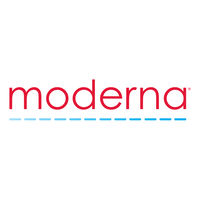预约演示
Synthetic DNA player Touchlight scores $60M round to more than triple manufacturing capacity as mRNA gets hot
2021-03-10
疫苗信使RNA
With the twin authorizations of Pfizer/BioNTech’s and Moderna’s mRNA vaccines for Covid-19 late last year, the market for starting materials for that type of shot has seen a big boost. One UK player with a new way to manufacture DNA, a key precursor to producing mRNA, is cashing a sizable check to scale up in a big way.
Touchlight has wrangled $60 million in financing to add 11 production suites to its London site specializing in producing synthetic DNA it says can be produced much faster than normal plasmid DNA, the company said Wednesday.
The expansion will enable Touchlight to triple production of its proprietary vector, dbDNA or what it calls “doggybone” DNA, by Q1 2022. The vector can be used in applications as wide as mRNA vaccines and gene therapies, and Touchlight said its estimated capacity could be enough to supply up to 1 billion Covid-19 shot doses
per month
.
Adding that capacity will take Touchlight’s footprint at its London headquarters to more than 7,500 square feet and will require hiring at least 60 new employees by the time the expansion is operational. The company’s total production suites will number 15 after the investment. The round was led by Bridford Investments Limited.
Some of Touchlight’s move is obviously meant to address the manufacturing crunch for Covid-19 vaccinesCovid-19 vaccines, but the firm doesn’t see a major slowdown in demand once the pandemic comes to a close.
“The genetic medicine industry is booming, and we don’t expect any slowing down of demand,” said Karen Fallen, CEO of Touchlight DNA Services, in a statement. “Availability of plasmid DNA has become a bottleneck which we are ideally positioned to address.”
Fallen, a former biologics manufacturing head at Lonza, came on board in October as the firm was looking to rapidly scale up given an increase in demand. At Lonza, Fallen served as president of mammalian and microbial development and manufacturing and guided 4,500 workers at 10 sites spread over three continents.
In February, Fallen told
Endpoints News
she chose to jump to the relative unknown Touchlight after deciding she wanted a chance to try something new.
“It was my time, I think, just to think about what do I want to do in the last 10 to 15 years of my career,” she said. “And I decided actually that I just wanted to do something different. I learned everything that I know at Lonza, and had a fantastic time (there). It’s a brilliant company — but I just thought I wanted to do something different.”
The company’s alternative to plasmid DNA has received renewed interest given the approvals of mRNA vaccines for Covid-19 from Pfizer/BioNTech and Moderna. To make mRNA vaccines, manufacturers first need to produce bulk amounts of DNA, which they then mix with artificial enzymes that translate the code into mRNA.
更多内容,请访问原始网站
文中所述内容并不反映新药情报库及其所属公司任何意见及观点,如有版权侵扰或错误之处,请及时联系我们,我们会在24小时内配合处理。
适应症
靶点
-生物医药百科问答
全新生物医药AI Agent 覆盖科研全链路,让突破性发现快人一步
立即开始免费试用!
智慧芽新药情报库是智慧芽专为生命科学人士构建的基于AI的创新药情报平台,助您全方位提升您的研发与决策效率。
立即开始数据试用!
智慧芽新药库数据也通过智慧芽数据服务平台,以API或者数据包形式对外开放,助您更加充分利用智慧芽新药情报信息。





